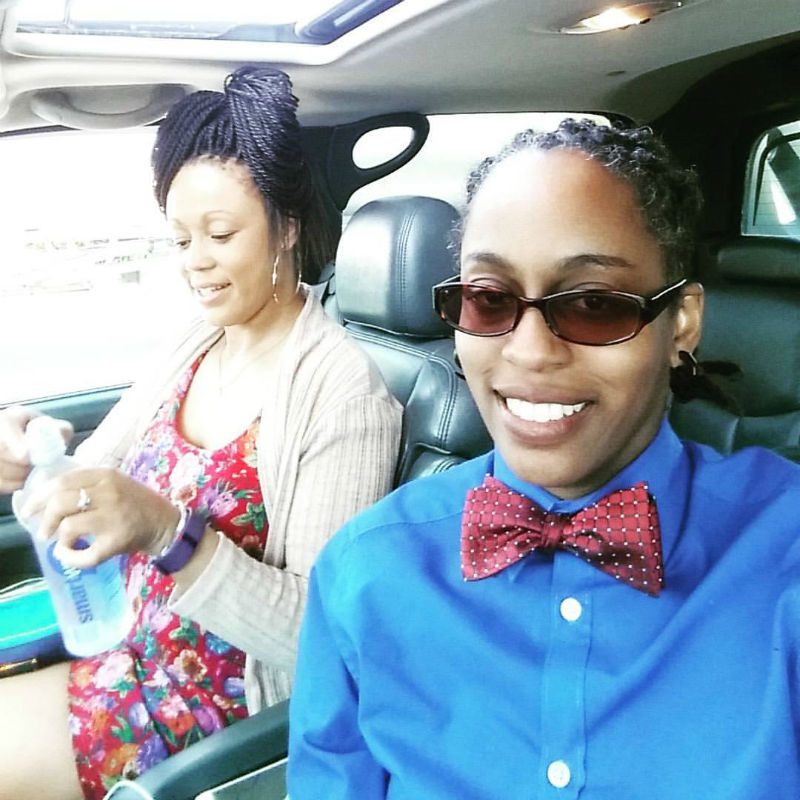Life as experienced by a queer woman of color.
My girlfriend and I (equal lovers of bourbon) were excited for our first road trip meandering the bourbon trail – the network of distilleries landscaping Kentucky. We both have our favorites: I tend to go for the conglomerate Jim Beam – producer of Knob Creek, Booker’s, Baker’s and Basil Hayden; while the lady friend is all about Four Roses. But two queer women of color have some considerations to make when hitting the southern road (and no, that’s not a euphemism): the South’s complicated history with blacks and its complicated history with LGBTQ folk.
Bland never made it home. Instead of receiving a citation, Bland was detained by Texas police and later found hung in her cell… For failure to signal a lane change. I didn’t want to encounter police. I didn’t want a flat tire, to run out of gas, to speed or anything that might place me in proximity with the police, a jail, or the judicial system.
Earlier this year, one of the few black Louisville judges was criticized for dismissing all-white juries for black defendants. Judge Stevens argued that race and cultural makeup are large factors in determining what consists as a jury of one’s peers. This definitely steps towards addressing systemic racial bias in the judicial system. The streets of downtown Louisville are home to several plaques commemorating Civil Rights events. Perhaps in the future, there will be a plaque for Judge Stevens; however, I know that I don’t want to be on a plaque martyred for racial awareness. I don’t want to inspire #blacklivesmatter marches. I just wanted bourbon and to make it home.
We made it without incident and the people of Kentucky – from Waffle House workers to distillery staff — were welcoming at every turn. Southern hospitality is alive and well in Kentucky. We did decide to forego bed and breakfasts and stick to major hotel chains. Two women requesting a one bed room might invite some scrutiny. My girlfriend offered, “Well, we don’t have to do anything.” I scoffed. “We’re paying to do what folks do in beds.” There wasn’t any debate and there isn’t need for it in this space either. We were too afraid to chance it because trying can be dying for folks like us; and the only debate left would be whether it happened because we’re black, queer or both.
I recently wrote that “to be a queer woman of color in ‘menswear’ is an act of resistance on multiple levels.” I’m often in bowties and this trip was no exception. Kentucky has its own ode to the bowtie in Derby attire. The ultimate thematic fashion party, the Kentucky Derby (also, apparently, a horse racing contest) epitomizes gendered dress and thus, begs to be queered. Big hats, gloves, belted dresses, seer sucker suits, wingtips, bowties – I am shocked to not have seen any queer events incorporate this theme. I have not been to the Derby, but I have attended a huge Chicago-based, Woodford Reserve sponsored Derby party and I assure you, I was the only woman in a bowtie and wingtips.
The coolest thing about the Derby (besides the mint juleps) is the nature of its throwback fashion. Even as it evolves, Derby fashion is also the culmination of all of its prior trends. During the 1920s and 1930s, entertainers Marlene Dietrich and Katharine Hepburn wore bowties and masculine attire on and off screen; while Harlem Renaissance lesbian blues singer Gladys Bentley frequently donned three-piece suits and top hats.
As similarly stated by singer Janelle Monae, my attire is an homage to my foremothers. Specifically, I embrace and embody the complex interstices of blackness, queerness and womanhood and the complicated spaces where they conflict or combine.
Plus everyone knows that bourbon tastes better with bowties.
